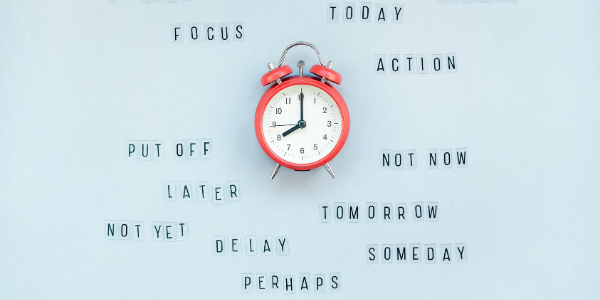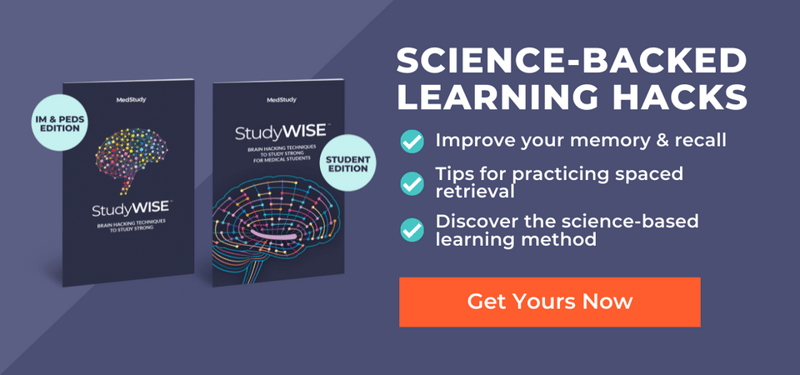How To Use Mindfulness Practices To Stop Procrastinating

Updated 8/31/22
Some of us tend to procrastinate more than others, but we’ve all been there at one point. Especially when something intimidating is looming in your future, and is there anything more intimidating than a board exam? The good news is that there's a lot you can do to manage procrastination, and it all starts with mindfulness.
How Procrastination Starts
Procrastination begins with negative thoughts or feelings that you are associating with a task. Feelings like fear, anger, or outright dread. They could also be more subtle emotions like frustration or boredom. When your brain associates one or more of these feelings with a task you're likely to start subconsciously putting it off to keep yourself happy in the short term. Your body will instinctually protect you from anything it perceives as negative in the short term, even if it will end up hurting you in the long run. That's why it is important to stay aware and keep the importance of your long-term goals in mind, so you can keep steering the ship.
Here’s Where Mindfulness Comes In
So, what’s the key to keeping your head in the game? Mindfulness! It's an excellent tool for maintaining your personal wellness, preventing burnout, and improving cognitive function. Pay attention to yourself and your environment, stay present in the moment, and don't judge yourself for any thoughts or feelings that come up.
Practicing mindfulness regularly improves your ability to recognize your emotions as they come up and brings your awareness to how you react to them. When you are aware of the negative emotions or distractions you are experiencing, you create the ability to choose how you react. Try it out next time you notice yourself procrastinating and notice what comes up for you.
For example: Have you ever felt anxious about studying because it makes you think about your looming exam? You may find yourself mindlessly scrolling through your phone as an unconscious way of distracting yourself. Instead of leaning into the negative emotions and distractions. You can instead actively decide how you deal with the emotions instead of blindly reacting. Maybe you re-focus yourself by taking a few mindful breaths or stepping outside for a minute. This will get you back on track and moving towards your goal of acing your board exam.
How Do You Actually Put an End to Procrastinating?
If you’re just getting started with practicing mindfulness it can be incredibly helpful to set up tools to remind you to come back to your intention for your study session. Here are some ideas:
- Try setting reminders for yourself. Set an alarm to go off every 1-2 hours during your study session to check in with yourself and get back on track if necessary.
- Keep a study journal. Record what you are able to cover each day, and write a note about how you are feeling about your next study units. Over time, you will recognize patterns that you tend to fall into and can make a plan to make your study sessions even more effective.
- Make a study schedule. We make this step easier than ever for you. Personal Trainer (A $300 value, included for free with the Core or Study Strong Essentials!) builds a custom study schedule for you based on your study goals and timeline.
- Start with some deep breathing. This is a great way to calm yourself down and manage burnout, but it is also a simple task that can help you be a little more present. It's a perfect starting point for adding more mindfulness to your daily routine.
Mindfulness is not something that can be learned in a day, but practicing it over time can help you stop procrastinating and start focusing on what you need to actually achieve your long-term goals.
Want more evidence-based study tips? Download The StudyWise Guide to discover the best, science-based approaches that you should take to improve recall and stimulate deep learning.



